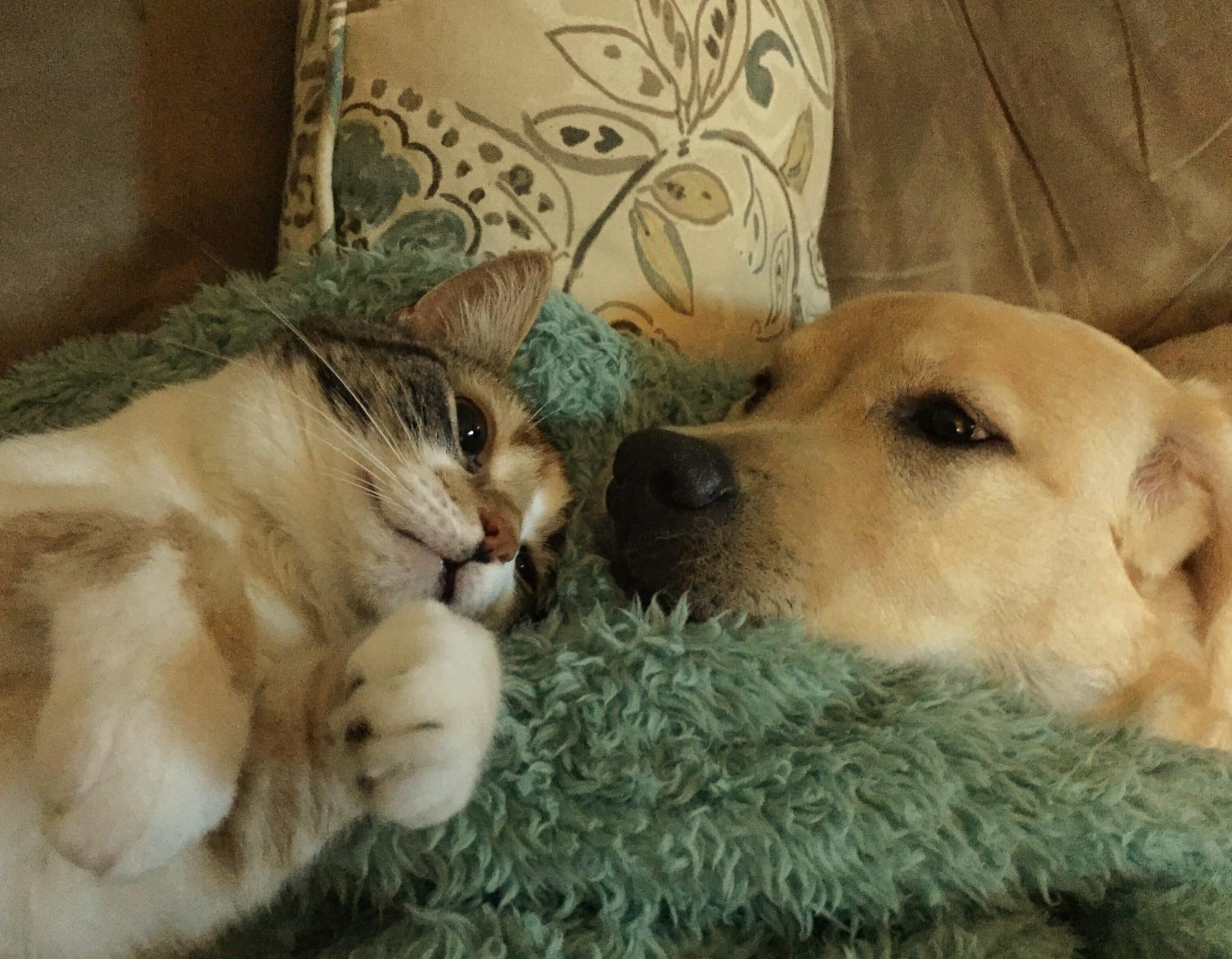Although humans and dogs are very different, in many ways, we are the same. Just like humans, dogs can also be allergic to things.
Cat allergies in humans create a whole host of uncomfortable symptoms, from sneezing and itchiness of the skin to wheezing and coughing.
Just like humans, dogs can also be allergic to cats. The culprits for this allergy are the same for humans and cats – that being cat dandruff and saliva.
What Are The Symptoms of Cat Allergy In Dogs?

While it’s incredibly uncommon for a dog to be allergic to cats, it does happen. In many cases, people mistake the cat allergy for a flea allergy or a tick bite.
A dog that’s allergic to cats will have symptoms very similar to other environmental allergies. The most common symptoms include lots of licking and scratching, which inevitably leads to skin changes such as redness and even blemishes and crusts.
In some cases, dogs may also develop respiratory problems such as coughing, sneezing, and watery eyes. Thankfully, these symptoms are very rare.
Here is a complete list of cat allergy symptoms in dogs:
- Excessive ear discharge
- Red and itchy skin
- Unusual odors (this is usually due to the development of a secondary infection caused by the cat allergy)
- Licks itself constantly – particularly over a large area of their body
- Develops hair loss
- Has coat discoloration
- Rubbing its face on rough surfaces like a carpet or sofa
If your dog has any of the symptoms above, you should book a visit to a licensed veterinarian as soon as possible. The vet is the only person that can diagnose the problem, and doing things on your own can only make things worse.
The vet will administer an intradermal allergy test so they can pinpoint the cause of the allergy. Veterinarian intradermal tests aren’t the most pleasant experience for your canine friend, but it’s the only way to find out if it’s really allergic to cats or not.
How To Manage Dog-To-Cat Allergy

If your vet diagnoses your dog with a cat allergy, it’s essential to consider how you will manage the issue.
You can try with individual immunotherapy. This treatment involves exposing your dog to the specific allergen it’s sensitive to either by injection or via oral spray/drops. This treatment aims to reduce the severity of itching and inflammation and decrease the need for itch-preventing medications.
Individual immunotherapy is the only method the veterinary community has found that effectively treats allergic reactions in dogs. Although not perfect – because your dog will still be itchy, only a lot less – this treatment is still way better than not treating the issue at all.
Between treatments and to ensure your dog is free of cat dandruff and saliva, you should bathe your dog regularly. You can also give your cat a bath if she doesn’t mind the water since that will significantly reduce
Besides medical treatments, you can make your furry friend’s living space allergen-free. This means reducing the amount of cat hair and dandruff from the rooms the dog spends most of the time in. We recommend you vacuum the carpets, upholstery, and drapes as frequently as possible. To ensure the best results, you can buy a vacuum specifically designed for collecting pet hair and dandruff.
Besides diligently vacuuming your home, you should also clean all the hard floors too. You can either use wet wipes, which aren’t the most efficient, or use a broom/vacuum that’s designed to catch pet hair and dandruff.
Additionally, you can consider buying an air purifier that’s capable of catching allergen-sized particles. This way, you won’t have to vacuum your place so often.
Don’t Ignore An Itchy Dog!
No matter what’s the problem, you should never ignore an itchy dog. If your dog is scratching itself constantly, even waking up from deep sleep to scratch, it indicates it has some dermatologic problem. If you don’t treat the issue as soon as possible, excessive scratching will lead to bigger problems.
Similar reading:
Environmental allergies in dogs


